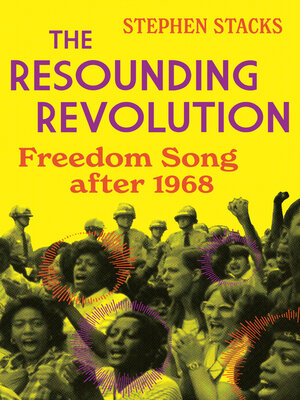The Resounding Revolution
ebook ∣ Freedom Song After 1968 · Music in American Life
By Stephen Stacks

Sign up to save your library
With an OverDrive account, you can save your favorite libraries for at-a-glance information about availability. Find out more about OverDrive accounts.
Find this title in Libby, the library reading app by OverDrive.



Search for a digital library with this title
Title found at these libraries:
| Library Name | Distance |
|---|---|
| Loading... |
Stacks's analysis shifts the focus of attention from genre—freedom song—to process and practice—freedom singing. As he shows, freedom singing after 1968 generates multilayered meanings. It can reinforce, or resist, consensus memories or dominant narratives. Stacks illuminates freedom singing's diversity by examining it in three contexts: performance, protest, and within documentary sound recording/film.
Insightful and vividly detailed, The Resounding Revolution examines sixty years of Black music to challenge and reshape the entrenched story of the Civil Rights Movement.
|Introduction: Freedom Song after 1968
Chapter 1. Memory, History, and Freedom Song
Chapter 2. From Freedom Song to Freedom Singing
Chapter 3. Bernice Johnson Reagon, Freedom Singing, and Musical Coalition Politics
Chapter 4. Warren County, Environmental Justice, and Freedom Singing in Protest
Chapter 5. Documentary Media, Freedom Singing, and the Construction of Sonic Blackness
Conclusion: Freedom Singing into the Future
Afterword
Acknowledgments
Notes
Bibliography
Index
|"The Resounding Revolution posits the freedom song as an expressive form of political empowerment. Stacks expertly draws from African American studies, environmental studies, and other fields to pry open the deeper levels of political work that freedom song has accomplished in the past five decades."—David F. Garcia, Distinguished Professor, University of North Carolina at Chapel Hill|Stephen Stacks is an assistant professor of music at North Carolina Central University.







